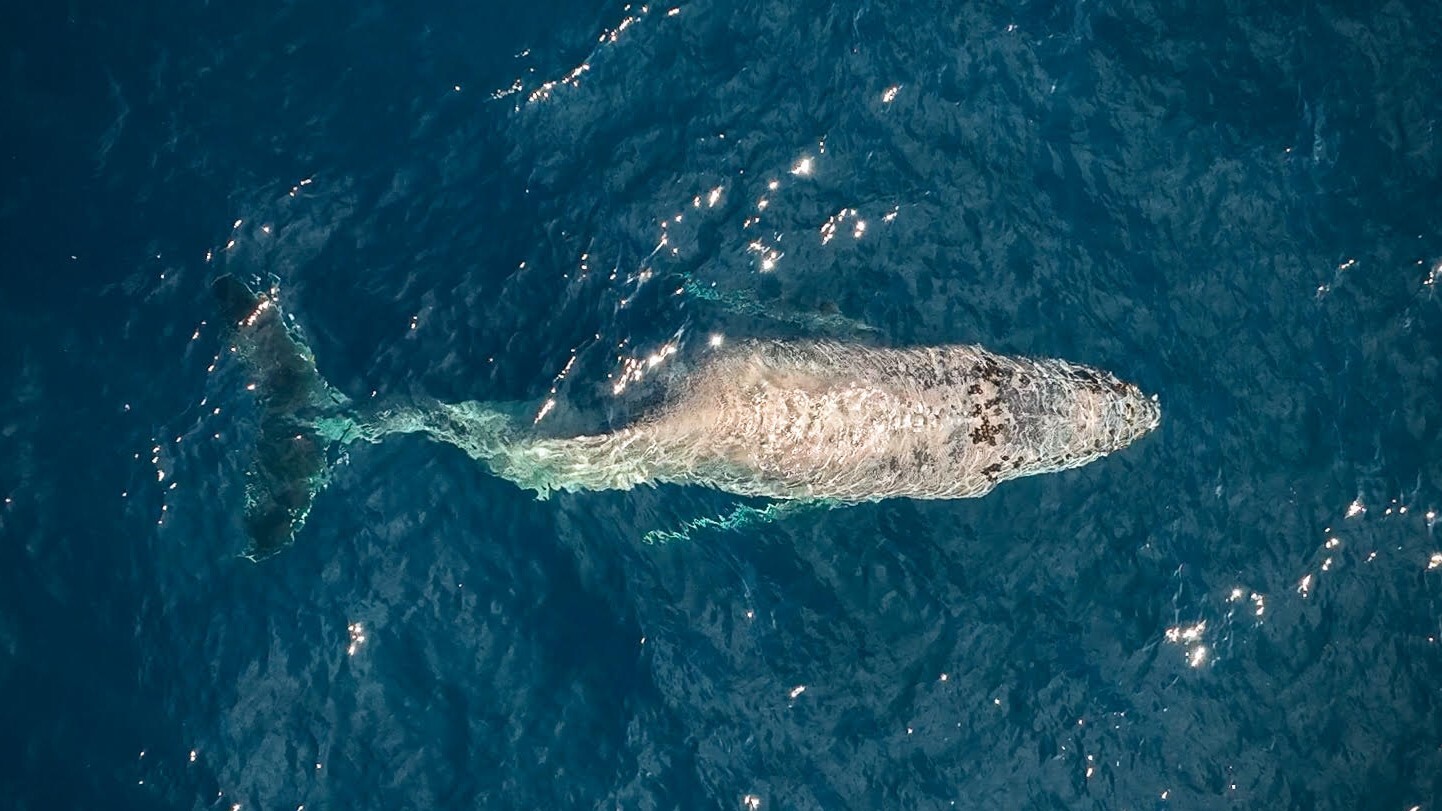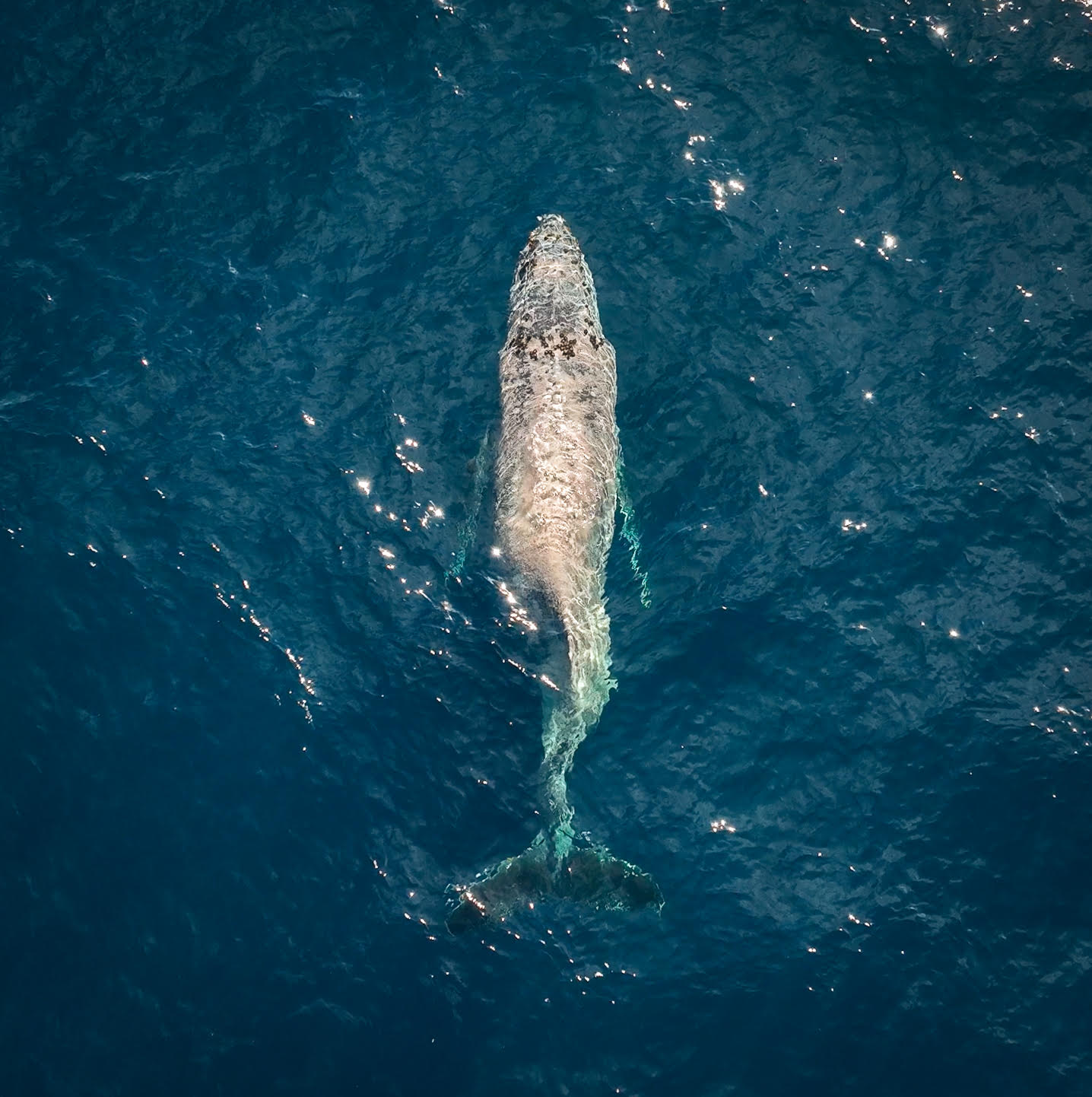Whale with broken back spotted near Mexico after suspected ship collision will likely die
A humpback whale off Baja California Sur with a deformed spine was likely hit by a ship and the injury will probably be fatal, an expert told Live Science.

A whale with a broken backbone has been spotted off the coast of Baja California Sur, Mexico after a suspected ship strike. An image of the humpback whale (Megaptera novaeangliae) taken with a drone camera shows its spine badly deformed at the tail — an injury that will likely prove fatal.
The whale was spotted in December, 2023 by underwater photographer and videographer Alexander Schmidt, from Apex Ocean Divers, off Cabo San Lucas. He shared footage of the whale with the Pacific Whale Foundation, a Hawaii-based nonprofit.
Scientists initially thought the whale could be Moon, a humpback that had swum 3,000 miles (4,800 kilometers) with a broken back from Canada to Hawaii. But closer analysis by Stephanie Stack, chief biologist at the Pacific Whale Foundation, confirmed they were different whales.
"As with Moon, I suspect this is likely to be a fatal injury," she told Live Science in an email. "Whales are highly resilient creatures, but severe injuries like this can significantly reduce their chances of survival in the wild."
Related: Scientists finally figure out why hundreds of gray whales keep washing up dead along US coasts
A broken back would cause difficulty swimming, affecting the whale's ability to migrate, feed, come to the surface for air and evade predators, Stack said. "Humpback whales operate on an extremely tight energy budget and an injury that affects their ability to move normally could have catastrophic consequences," she added. "Beyond the physical challenges, a broken back is likely to cause significant stress and pain for the affected whale."

How the whale off Baja California Sur got injured is unknown, but collisions with ships are a significant cause of whale deaths, with estimates suggesting thousands are killed every year, according to research by non-profit Friend of the Sea. In March, 2023, a 56-foot-long (17 meters) fin whale (Balaenoptera physalus) was spotted struggling to swim off the coast of Spain due to a severely broken back. Experts said the injury was also likely caused by a ship collision and that the whale would probably slowly starve to death.
Sign up for the Live Science daily newsletter now
Get the world’s most fascinating discoveries delivered straight to your inbox.
Whale mortality is a significant problem off the U.S. West Coast as several endangered species frequent these waters. As a result, the National Oceanic and Atmospheric Administration (NOAA) put speed regulations in place so vessels over 65 feet (20 m) long can't travel over a maximum of 10 knots (11.5 mph, or 18.5 km/h) at certain times of the year.
But research suggests slower speeds are not enough — a study published in 2021 found that 95% compliance with lower speed rules would reduce whale deaths only by between 25% and 30%.
"We know that vessel collisions are one of the most significant and widespread threats that whales are facing today," Stack said. "Cases like these are tragic, but we hope they can be used to raise awareness and prevent future deaths."

Hannah Osborne is the planet Earth and animals editor at Live Science. Prior to Live Science, she worked for several years at Newsweek as the science editor. Before this she was science editor at International Business Times U.K. Hannah holds a master's in journalism from Goldsmith's, University of London.









